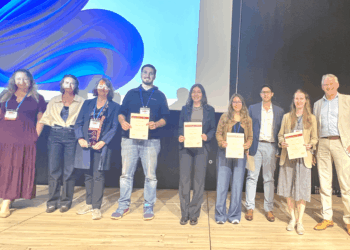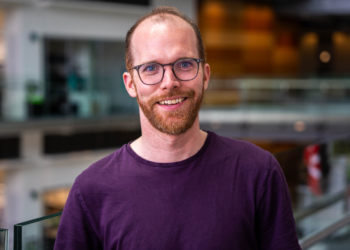
EACR member Tiainla Jamir shares her personal highlights from the book ‘Advice to a Young Scientist’ by Peter B. Medawar.
Peter B. Medawar, a Nobel Prize-winning immunologist, penned a timeless guide for aspiring scientists in Advice to a Young Scientist. Through his sharp wit and candid observations, Medawar distills decades of experience into invaluable insights on scientific research, intellectual rigour, and personal resilience. His work emphasises that success in science is not dictated by genius but by curiosity, perseverance, and adaptability.
The Path to Becoming a Scientist
Medawar acknowledges that many young researchers question whether they are suited for a scientific career. He reassures them that doubts and setbacks are common, emphasizing that scientific progress often involves prolonged periods of failure. The ability to persist, remain flexible, and accept failure as part of discovery is crucial. He advises young scientists to cultivate diverse research avenues and avoid fixating on a single hypothesis.
The romanticised image of a scientist making grand discoveries overlooks the demanding nature of the profession. Scientific work is exhaustive, mentally taxing, and can strain personal relationships. Medawar suggests that true motivation must stem from a deep-seated desire to explore and uncover truth rather than mere curiosity. He argues that intelligence alone is not the defining trait of a successful scientist. Instead, common sense, intellectual honesty, and an unyielding work ethic are paramount.
Choosing the Right Research Focus
Medawar advises young scientists to select research topics that are both significant and impactful. He warns against pursuing trivial or trendy problems, urging researchers to focus on questions that hold real scientific or societal value. A vibrant intellectual environment is essential for creative and critical thinking, preventing researchers from becoming isolated in their own ideas.
Furthermore, Medawar highlights the importance of choosing mentors wisely. A good mentor provides not only technical guidance but also encouragement and critical feedback. He cautions against excessive attachment to a single research area, advocating for exploration beyond one’s Ph.D. studies. Exposure to different disciplines and postdoctoral experiences can help young scientists refine their judgment and broaden their perspectives.
Becoming a Competent Scientist
Medawar challenges the idea that one must attain complete expertise before engaging in research. He supports a “learn on demand” approach, where acquiring knowledge and skills is driven by the needs of one’s work rather than an attempt to master everything in advance. Selective reading, hands-on experimentation, and collaboration are key to becoming an effective scientist.
Scientific growth also depends on practical experience. Medawar stresses that even modest research results can significantly boost confidence and provide a sense of belonging within the scientific community. He advises against unnecessary reinvention and encourages making use of available resources, leveraging collaboration, and maintaining adaptability.
The Role of Women and Diversity in Science
Medawar critiques outdated notions of gender roles in science, emphasizing that women face the same competitive pressures as men. He rejects the idea that female scientists possess unique intuitive abilities and instead highlights that their success stems from the same dedication and intelligence required of any scientist.
He also dispels the misconception that certain nationalities hold an inherent advantage in scientific ability. National pride should not overshadow the reality that science thrives on collaboration, with institutions like the Institut Pasteur and the Max Planck Institute fostering international cooperation. Medawar highlights that scientific talent is not restricted by gender or nationality, and diversity enhances the progress of research.
Collaboration in Science
Scientific teamwork differs from collaboration in other fields. Medawar likens it to an evolving conversation where ideas are continuously refined rather than isolated contributions being assembled. He stresses that successful collaboration requires generosity, mutual respect, and an acceptance of differing perspectives.
However, he acknowledges that not all scientists thrive in collaborative settings. Some prefer independent work, and both approaches can be effective depending on the nature of the research. The key is to recognise one’s working style and foster environments that support intellectual growth and collective inquiry.
Balancing Youthful Ambition with Wisdom
Medawar discusses the generational differences in scientific research, cautioning young scientists against arrogance. While ambition and confidence are valuable, they must be tempered with humility and openness to criticism. Likewise, he warns older scientists against dismissing new ideas simply because they challenge established norms. A successful scientific community thrives on a balance between fresh perspectives and the wisdom of experience.
Mentorship plays a crucial role in bridging this gap. Medawar encourages senior scientists to nurture younger researchers, fostering an environment of support and constructive dialogue. Innovation flourishes when both ambition and experience are acknowledged and respected.
Experimentation and Scientific Discovery
Medawar emphasises that discovery is not about seeking personal recognition but about contributing to collective understanding. He critiques the notion of scientific progress as mere data compilation, highlighting that meaningful research makes the world more understandable.
He advocates for hypothesis-driven experimentation, where theories are tested critically rather than passively observed. Medawar warns against emotional attachment to hypotheses, as this can compromise objectivity. He encourages young scientists to embrace rigorous testing and remain adaptable in their pursuit of truth.
Final Thoughts
For aspiring young scientists, the path to scientific achievement is filled with uncertainty. The desire to make meaningful contributions often comes with self-doubt. Medawar’s reflections offer reassurance: greatness in science does not require genius but rather a sharp, inquisitive mind and a steadfast commitment to discovery.
 About the Author:
About the Author:
Tiainla Jamir is an aspiring neuroscientist from Nagaland, India with a strong foundation in Biotechnology and a Master’s degree in neuroscience. Currently, she works as a Research and Editorial Assistant under the mentorship of Dr. Anil Pande, a distinguished neurosurgeon, at VHS Hospital, India. Her primary research interests focus on Glioma Connectomics and Precision Medicine in neuro-oncology. She is actively pursuing PhD opportunities to deepen her understanding of the brain’s intriguing complexity and make meaningful contributions to neuroscience research.



 About the Author:
About the Author:





